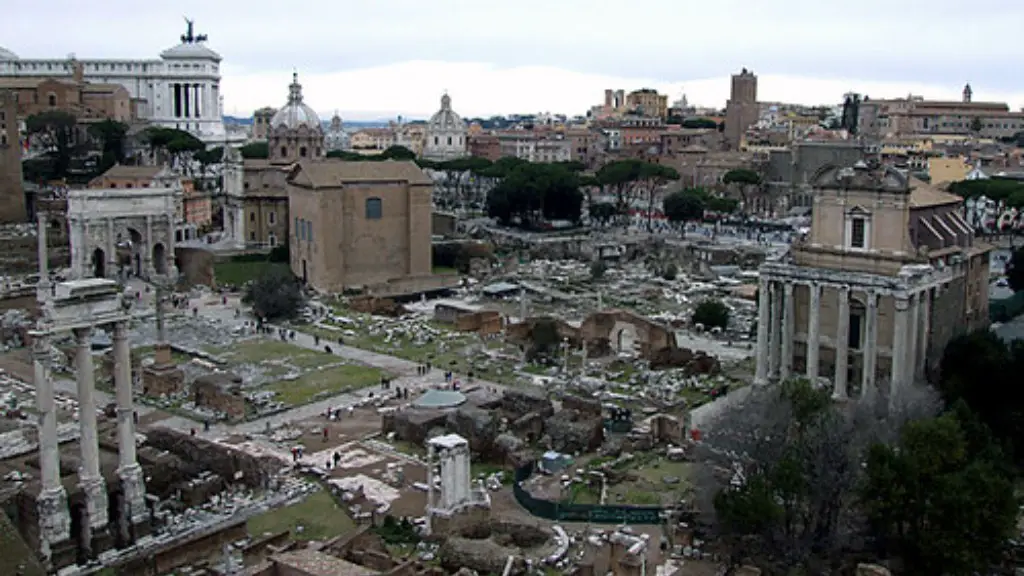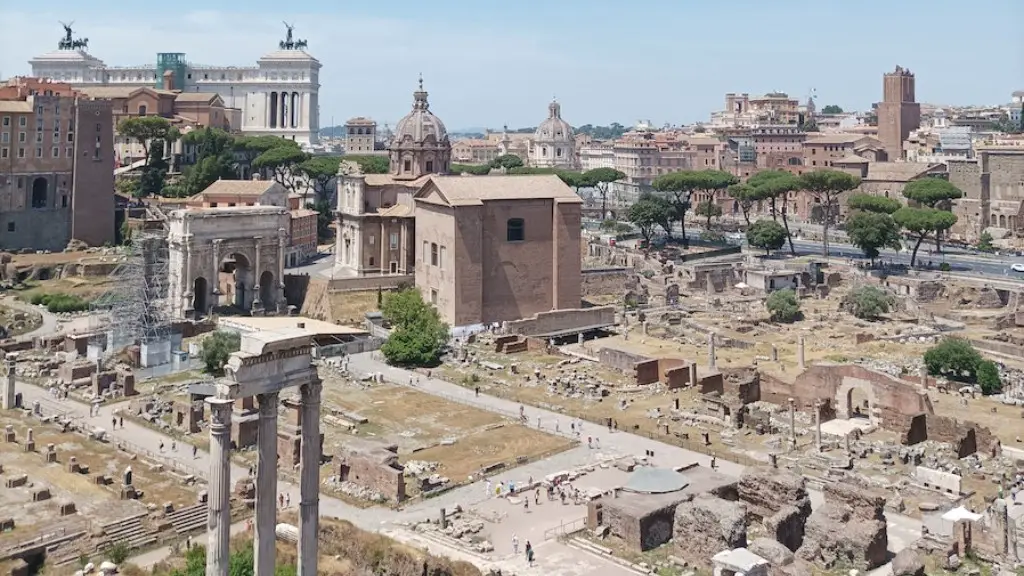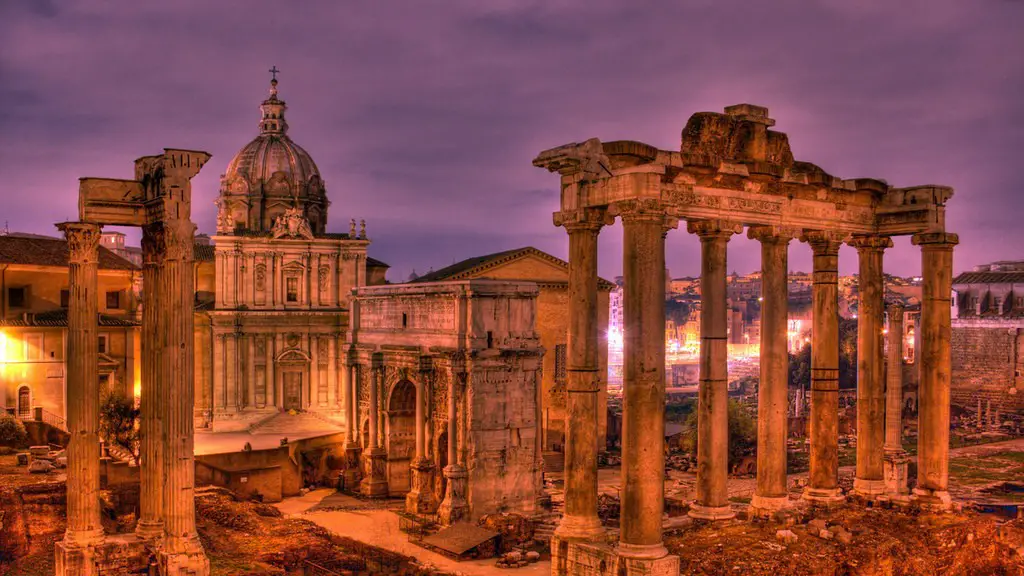Pentecost and Primitive Christianity in Ancient Rome
Pentecost marks the beginning of the Christian Church in ancient Rome. Long before the arrival of Christianity in the city, there were other religions in Rome that tried to introduce the concept of faith and devotion to a higher power. However, these religions failed to take a foothold, and Christianity was able to eventually become the dominant religion in the city. Pentecost, one of the most important events in the Christian religion, happened in the year 33 CE when the Holy Spirit descended on the apostles. This event marks the start of the preaching of the message of God in Rome.
It is believed that the first Christian leaders in Rome were Peter and Paul. Both Apostles traveled to the city of Rome, Peter arriving first in 42 CE and Paul arriving in 53 CE. From then on, the Christian faith quickly spread to the citizens of Rome. The religious fervency of the Roman people helped the church to expand quickly.
As Christianity was established in Rome, different methods of preaching were developed. Preaching became the pillar of missionary work and was the means by which God’s message spread. The preaching of Christian beliefs was done in a very specific way, usually through the showcasing of stories and miracles. This helped to further engage the people and further their understanding of the teaching.
The Acts of the Apostles, written by Luke, is the main source of information that is available to us regarding the preaching that was done during this time. The book records the happenings of various Christian leaders and their conversions. In the book, it is recorded that some of the foremost missionaries of Christianity traveled to Rome to preach the message of God to the people there.
The preaching of Christianity in Rome was not limited just to the city. Christian missionaries spread out, travelling to other parts of the Roman Empire and spreading the message of the Christian faith to all. Preaching was done to everyone from slaves to senators, all across the empire.
Christianity quickly spread and never looked back as it’s message of peace and love resonated with the people of ancient Rome. This faith, among many, captured the spirit of the people and rose above the other religions of ancient Rome.
The Early Church and Missionary Work
The early church, borne from the preaching of sacred texts and the sharing of the Gospel, was a great force in the early years of Christianity in Rome. The church was a source of support and guidance for the Christians living in the city. The church was instrumental in spreading and teaching the Christian faith to others. By preaching the word of God, converts to Christianity increased in number.
Missionary work was also very important to the early Christian Church in Rome. Missionary work involved spreading the word of God to those outside the city, throughout the Roman Empire. Preachers would travel far and wide, teaching the Gospel and sharing their faith with the people they encountered. They became great evangelists who, through the power of their preaching, led many to follow the Christian faith.
The missionary work of the early church was very successful and it is believed that, by the second century, as many as one-third of the population of the Roman Empire were Christians. This was largely due to the zealous preaching of missionaries and the meek acceptance of the early Christians.
The missions of the early Church were also very effective in providing resources for other churches. They formed a network of support that helped the spread of the Gospel and enabled the growth of Christianity in the region. This network remained an important part of the church until its decline in the fourth century.
Not only did they influence Rome internally, they also spread missionary works to other regions of the world. Christianity, because of its nature as a missionary religion, began to spread rapidly outside of the Roman Empire.
Religious Persecution in Ancient Rome
Religious persecution was a reality of life during the time of Ancient Rome. Christianity was seen as a threat to the social structure and was seen as a cause of dissent by the ruling classes.
This led to the rise of religious intolerance in ancient Rome. Christians were persecuted for their beliefs and were thrown in prison or even killed for their faith. The most famous example of this is the martyrdom of St. Paul, who was put to death by the Roman authorities for being a Christian.
But religious intolerance did not last forever. The Roman Empire was eventually converted to Christianity, thanks to the efforts of the early church. This marked the end of the persecution of Christians in Rome.
As the Roman Empire converted to Christianity, the missionaries who had spread the faith in its infancy became recognized as the saints of the new faith. Through their efforts and dedication, Christianity was able to become the predominant faith of the Roman Empire.
The Impact of Christianity in Ancient Rome
Christianity, with its strict rules and regulations, provided structure and order in the ever-changing world of Ancient Rome. The teachings of Christianity preferred a moral code that valued honesty, faithfulness and compassion, very different from the values of Ancient Rome.
The presence of Christianity in Rome also increased the level of education. This was due to its emphasis on education and knowledge, which helped spread the teachings of the Christian faith. Schools, libraries and universities were built, which taught the principles and tenets of the faith. The popularity of Christianity in Rome also gave rise to a flourishing Christian art scene.
Christianity also impacted the political structure of Rome. Its emphasis on morality and justice allowed it to provide an alternative to the ruthless corruption and greed of Roman politics. Christian thinkers and philosophers also argued against the idea of an unjust government, favoring laws that were based on justice and fairness.
Christianity influenced the Roman world in many ways, leading to its incredible spread throughout the Roman Empire. Its presence in Rome not only provided structure and order, but it also allowed for the spread of the teachings of Jesus Christ and the Gospel.
The Decline of Christianity in Ancient Rome
By the fourth century, Christianity in Rome had reached its peak. But, despite its rapid spread and popularity, Christianity declined in Rome by the end of the sixth century. This was largely due to political and social changes in Rome, which led to the decline of the faith.
By this time, the Roman Empire was on the decline and the political unrest had caused a disruption in the Roman way of life. As a result, many of the Christians, who had once embraced the teachings of the faith, began to lose interest in it.
The rise of the Church of Rome also played a part in the decline of Christianity. The Church had become increasingly powerful and corrupt, and the faith was no longer seen as a source of inspiration. This caused many people to become disillusioned with Christianity and to turn to other beliefs.
The fall of the Roman Empire also had an effect on Christianity’s decline. The empire was overrun by barbarian tribes, and the faith was left to fend for itself amongst the chaos.
The decline of Christianity in Rome was a natural consequence of the changing times and the pressures brought on by hostile political and social forces.
Conclusion
The preaching of Christianity in Ancient Rome marked a fundamental shift in the spiritual landscape of the city. Through the efforts of Peter, Paul and other early Christians, God’s message was spread throughout the Roman Empire and changed the course of history.
The early Christians spread the message of God’s love, compassion and justice in the face of hostility and persecution. The missionaries, with their zealous preaching, laid the foundation for a new religion, one that would bring peace, love and salvation to the people of Rome.
Though the religion eventually declined in Rome, the teachings of Christianity continue to resonate throughout the world to this day. The impact of Christianity in the city of Rome is still felt, and the message of a merciful God, first preached in the city, is still preached in other parts of the world.





